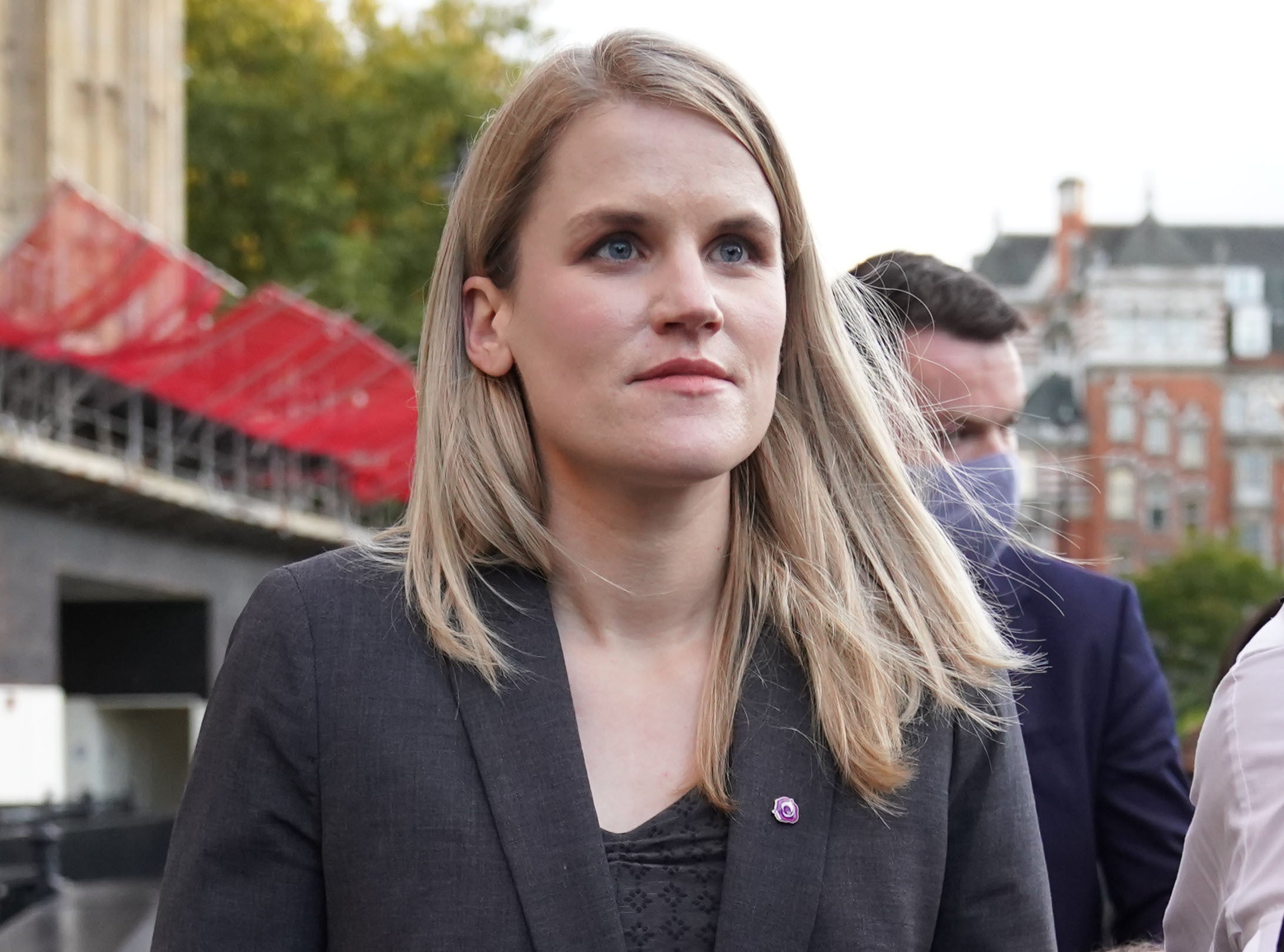Whistleblower says Bill must include tool that forces Facebook to publish data
Frances Haugen also said the Government should order an independent review of the Data Protection Commission.

Ireland’s Online Safety Bill must include mechanisms that forces Facebook to publish data and increase transparency, a Facebook whistleblower has told an Oireachtas committee.
Frances Haugen said the Bill should include forced transparency as self-regulation of the social media giant does not work.
Appearing remotely before the the Oireachtas Tourism, Culture, Arts, Sport and Media Committee, Ms Haugen said there is a “major national security problem” with Facebook and its lack of transparency.
She also said the Government should order an independent review of the Data Protection Commission.
“There is a major, major, major national security problem with Facebook with regard to lack of transparency,” Ms Haugen added.
“It needs to include mandatory force transparency, like the (Europe) Digital Services Act does.
“Unless we have forced transparency, we will not in any way adequately find those influence operations that Russia uses to destabilise free societies.
“Unless we have mandated transparency, unless the public has the right to ask questions and get real validated data in return on an ongoing basis, they’re going to tell you they can’t give you this data monthly or weekly. And that’s a lie.
“Because if they write the code once to pull this information, they have systems that allow them to run it every day if they want to.
“It’s basically free.”
Ms Haugen warned that without mandated transparency, there will not be an acceptable level of public safety.
Ms Haugen said that governments should tackle the algorithms in the platforms, and that there is too much focus on the content.
The idea that Ireland is going to be able to go out on the world stage and pay market competitive strategies on specialist like this, it's an undue burden on the Irish people.
The committee heard that The Online Safety Commission would need at least 20 algorithm experts to tackle the tech giant, but that there are only 200 to 300 qualified people world-wise.
She said that the top algorithm experts are paid between 500,000 to 750,000 dollars a year.
“The idea that Ireland is going to be able to go out on the world stage and pay market competitive strategies on specialist like this, it’s an undue burden on the Irish people,” she added.
“I don’t think it’s responsible to force all the costs for an effective regulator just on the Irish taxpayer.”
Ms Haugen is a former product manager at Facebook turned whistleblower whose revelations about the company’s practices have drawn global attention.
She says the social media giant prioritises engagement and user growth over online safety.
“As your Online Safety Bill acknowledges, self-regulation of social media has not worked,” Ms Haugen added.
“Platforms cannot be trusted to act in the public interest.
“They are often, as my revelations showed, fully aware of the harms caused by their products and services, and yet choose to ignore these in favour of growth and profit.
“As you set up the new regulator for your Online Safety regime, I would urge you to learn lessons from the criticisms of your other digital regulator, the Data Protection Commission.
“The DPC is widely considered to have stepped back from its responsibilities in properly enforcing GDPR.
“The tech companies on your shores have, once again, got away with it.
“As you create an independent, robust and effective online safety regulator, you must launch an independent review into the DPC so that it too can start to enforce the law thoroughly and boldly.”
She said that Ireland holds a “unique responsibility” because it is the place of establishment for these companies.
“While Europe has led the way in terms of robust, strong regulations around things like privacy, Ireland has faced a challenge in that it’s falling behind in terms of actually enforcing that law,” she added.
“The Irish people have an opportunity here to really show that they can stand up to these giants, but we need to change the pattern because so far GDPR has not demonstrated that Ireland is willing to fund and actually hold to account these large tech companies when it comes to tech regulations.”
She added: “One of the concerns I have with the current Online Safety Bill in Ireland is that it strongly focuses on content, what content should be illegal, what kind of current content should be taken down.
Facebook are the only ones that can see behind the curtain of their business
“One things that DSA (Digital Services Act) does well as it focuses on risk assessments, on the idea that what we need to do here is figure out how to close the feedback loop.
“Facebook are the only ones that can see behind the curtain of their business.
“Academics can’t study it, individual citizens can’t see more than their own individual experience.
“There is no current feedback loop where when something goes wrong on Facebook, no one, other than Facebook, can observe it and suggest corrections.
“The DSA risk assessments close that circle.
“They say companies need to start disclosing what the risks are, but they also need to listen to concerns from NGOs, from governments, and be able to state what those mitigations are going to be and have them assessed by an independent party.”
Bookmark popover
Removed from bookmarks